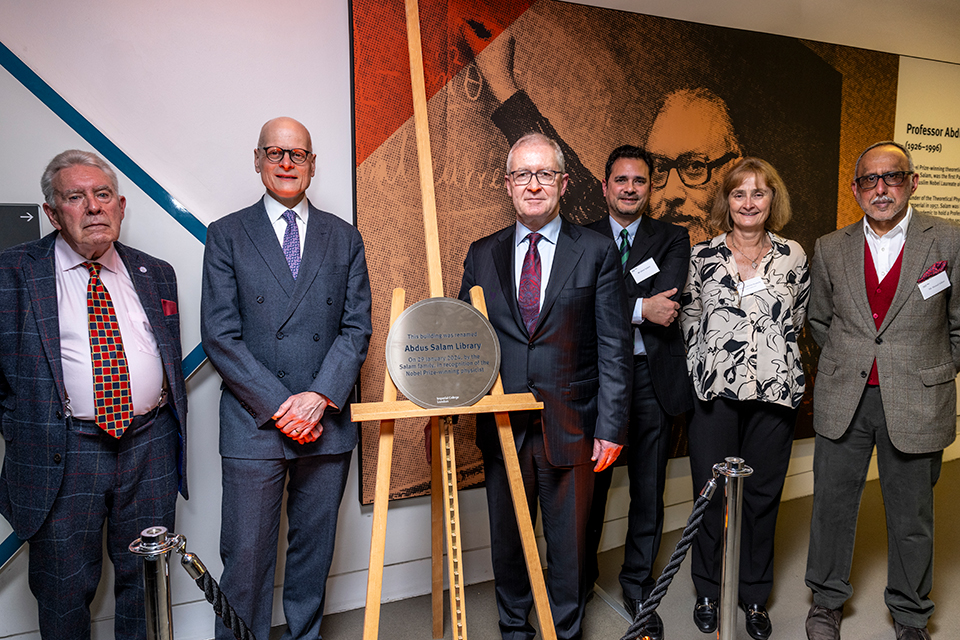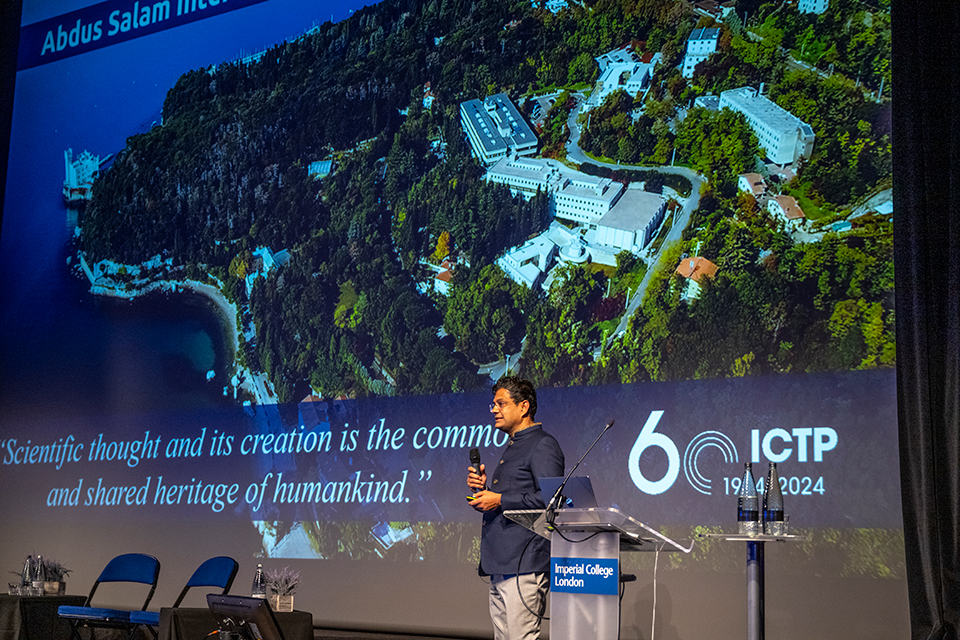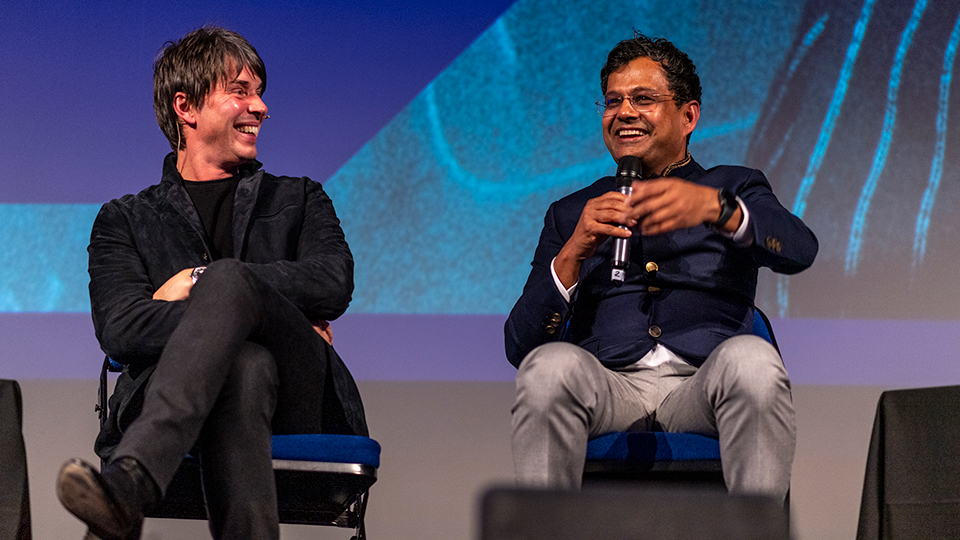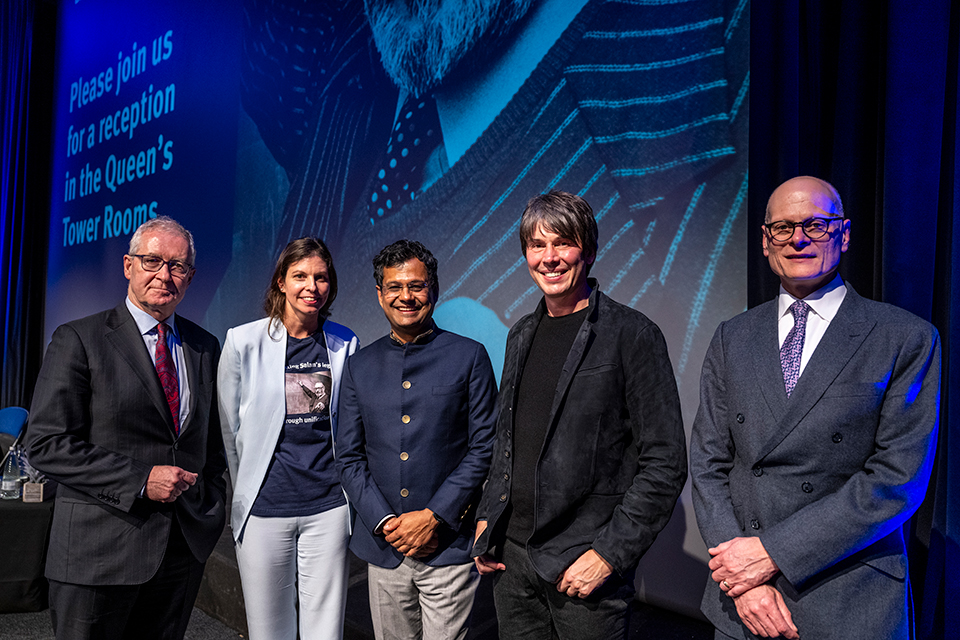
Over time, building names become something we don’t really think about; a fixed background detached from any person or place to which the name originally referred. This has changed in recent years, with several universities examining building names to determine if these have any unwanted historical connotations, or if more can be done to highlight the achievements of academics from underrepresented communities.
In 2020, Imperial College London (ICL) commissioned a working group with this in mind, and the resulting report recommended the university do more to recognise the achievements of individuals from marginalised groups, highlighting ICTP’s founder Abdus Salam as one of five brilliant but underrepresented ICL academics.
Salam was a theoretical physicist famous for his work on unifying the electromagnetic and weak nuclear forces, for which he was the first Pakistani and first Muslim to win the Nobel Prize in Physics, in 1979. His research was fundamental to the Standard Model of Particle Physics that describes all known particles and forces with the exception of gravity.
“Salam created a centre which I think is unique in the world, with a kind of availability where a Nobel laureate could be speaking with a young scientist from a far corner of the world about the latest developments in science.” - Atish Dabholkar, director of ICTP.

Before founding ICTP in 1964, Salam set up the theoretical physics group at ICL with another seminal physicist, Paul Matthews. This strong link with Imperial led to the recent renaming of their Central Library to the Abdus Salam Library. The newly-named building was celebrated on Monday 29 January, Salam's birthday, with an event entitled Abdus Salam and the Fundamental Forces of Nature. The event gathered physicists and laypeople, including some of Salam’s family, former students and colleagues, to honour his academic and cultural legacy.
Atish Dabholkar, director of ICTP, gave a talk about Salam’s passion for unifying both physics and people, and his work in encouraging and promoting science in the developing world.

“Salam grew up in a small village in Pakistan, and he found he had to make this terrible choice between pursuing science or living in his own country,” said Dabholkar. “He decided he wanted to create a place where scientists from all over the world can come together; to help overcome the barriers of gender and ethnicity, but even more so, of geography and economics, which can be sometimes even more deciding.
“Salam created a centre which I think is unique in the world, with a kind of availability where a Nobel laureate could be speaking with a young scientist from a far corner of the world about the latest developments in science. Or where Chinese and Indian or Pakistani scientists can come together to discuss climate models for monsoons, forgetting possible political barriers. This is the humanitarian mission and contribution of Salam.”
“I went back and read through a lot of Abdus Salam’s writings, including his Nobel lecture, and I got the overwhelming sense that one of the things that drove him, perhaps the fundamental belief he had, was in the inherent beauty of nature” – Brian Cox CBE FRS.

Particle physicist Brian Cox CBE FRS gave the event’s keynote lecture on the Standard Model of Particle Physics, with a particular focus on symmetry in nature. Cox also mentioned Salam, saying, “I went back and read through a lot of Abdus Salam’s writings, including his Nobel lecture, and I got the overwhelming sense that one of the things that drove him, perhaps the fundamental belief he had, was in the inherent beauty of nature. Not just the beauty in a potentially simple structure underlying the complexity that we see, but also, the beauty in human beings, and in particular, the great advantage in looking at things in different ways, not only scientific objects, but also the challenges we face.”
Cox highlighted the extraordinary achievement of Salam and his colleagues in bringing together various ideas within particle physics to create the Standard Model. Cox also touched on several lingering unknowns, such as the hierarchy of subatomic particle masses, supersymmetry, and gravity, which is not included in the original standard model.

During a question-and-answer session after the keynote talk, an audience member asked how Salam’s legacy could be used to engage with a next generation of scientists from diverse backgrounds. Dabholkar replied, “Bringing talents in from all over the world gives you a different perspective. Ramanujan is a famous example, in that he had a different way of doing number theory, and that led to new insights that would not have been possible using another way of doing things.”
















